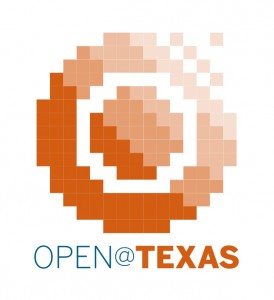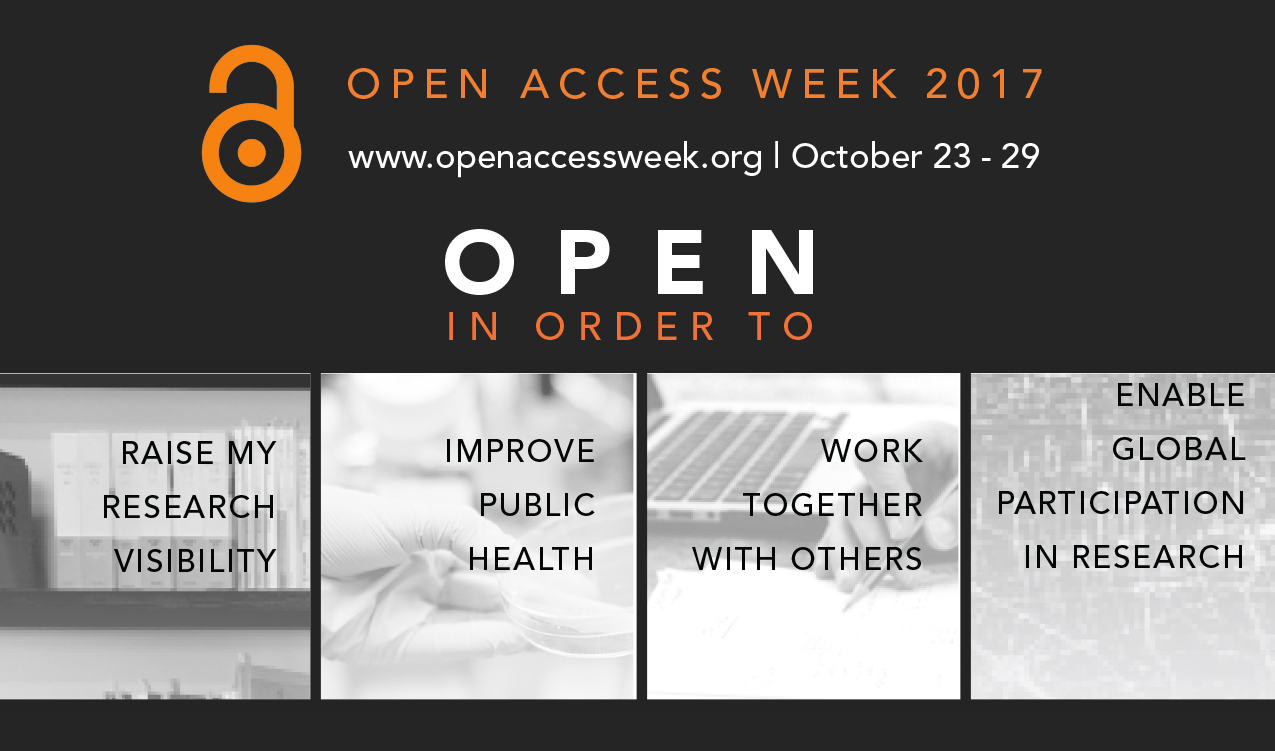As we prepared for Open Access (OA) Week 2017, it’s been exciting to think back about how far we’ve come in the last several years. For those who aren’t familiar, OA Week is a celebration of efforts to make research publications and data more accessible and usable. Just ten short years ago we lacked much of the infrastructure and support for open access that exist today.
 By 2007 we had implemented one of the core pieces of our OA infrastructure by joining Texas Digital Library (TDL). TDL is a consortium of higher education institutions in the state of Texas. TDL was formed to help build institutions’ capacity for providing access to their unique digital collections. That membership continues to grow and TDL now hosts our institutional repository, Texas ScholarWorks, our data repository, Texas Data Repository, our electronic thesis and dissertation submission system, Vireo, and is involved in our digital object identifier (DOI) minting service that makes citing articles and data easier and more reliable. These services form the backbone of our open access publishing offerings.
By 2007 we had implemented one of the core pieces of our OA infrastructure by joining Texas Digital Library (TDL). TDL is a consortium of higher education institutions in the state of Texas. TDL was formed to help build institutions’ capacity for providing access to their unique digital collections. That membership continues to grow and TDL now hosts our institutional repository, Texas ScholarWorks, our data repository, Texas Data Repository, our electronic thesis and dissertation submission system, Vireo, and is involved in our digital object identifier (DOI) minting service that makes citing articles and data easier and more reliable. These services form the backbone of our open access publishing offerings.
Our institutional repository, Texas ScholarWorks (TSW), went live in 2008. TSW is an online archive that allows us to share some of the exciting research being created at the university. We showcase electronic theses and dissertations, journal articles, conference papers, technical reports and white papers, undergraduate honors theses, class and event lectures, and many other types of UT Austin authored content.
TSW has over 53,000 items that have been downloaded over 19 million times in the past nine years.
In spring of 2017 we launched the Texas Data Repository (TDR) as a resource for those who are required to share their research data. TDR was intended to serve as the data repository of choice for those researchers who lack a discipline-specific repository or who would prefer to use an institutionally supported repository. TDR serves as a complementary repository to Texas ScholarWorks. Researchers who use both repositories will be able to share both their data and associated publications and can provide links between the two research outputs.
For several years the library has been supporting alternative forms of publishing like open access publishers and community supported publishing and sharing. Examples of this support include arXiv, Luminos, PeerJ, Open Library of the Humanities, Knowledge Unlatched, and Reveal Digital. These memberships are important because it’s a way for us to financially support publishing options that are more financially sustainable than the traditional toll access journals. Many of these memberships also provide a direct financial benefit to our university community, like the 15% discount on article processing charges from our BioMed Central membership.
In an effort to lead by example, the UT Libraries passed an open access policy for library staff in 2016. This is an opt-out policy that applies to journal articles and conference papers authored by UT Libraries employees. With this policy the library joins dozens of other institutions across the U.S. that have department level open access policies.
This past year we started a very popular drop-in workshop series called Data & Donuts. Data & Donuts happens at the same time every week, with a different data-related topic highlighted each week. All the sessions have a shared goal of improving the reproducibility of science.
Data & Donuts has attracted over 340 people in the past nine months which makes it one of our most successful outreach activities.
We have another reason to be optimistic this year. The Texas state legislature passed a bill this summer that should expand the awareness of and use of open educational resources (OER). SB810 directs colleges to make information about course materials available to students via the course catalog. If there is an online search feature for the catalog, the college has to make it possible for people to sort their search by courses that incorporate OER. The catalog functionality is set to go into effect this spring, so we’ll be keeping an eye on how things develop over this academic year.
We will continue the momentum we have generated from the launch of TDR, our Data & Donuts series, and our support of open publishers. We are putting together topics for Data & Donuts this spring, planning events associated with open access and author rights, and continuing to improve our online self-help resources. We are committed to offer assistance to any faculty, staff, or student at the university who has a question about open access.
We encourage department chairs and tenure and promotion committees to talk with their colleagues and/or engage with us in discussions about what open access means for their discipline.
UT Libraries will continue to explore new publishing models and initiatives to share UT’s rich scholarship and discoveries, to find ways to increase access to open educational resources, and to support future faculty and scholars in accessing, using and curating the growing body of data that is central to the research enterprise.

